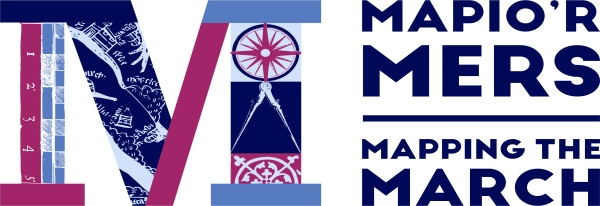‘Mapping the March’ aims to produce a cultural history of the medieval March of Wales, the borderlands lying between Wales and England
From 1066, following the Norman conquest of England, the Welsh borders and southern coastline were continuously occupied by Norman and then English barons, forming ‘Marcher lordships’ which were multicultural and multilingual.
The ebb and flow of the Marcher lordships, which changed in size and ownership especially after the loss of independent Wales in 1282, have never been fully captured in histories or in cartographic maps.
A key output of the project, in collaboration with the Royal Commission on Ancient and Historical Monuments in Wales, will be digital maps of the lordships illustrating their territorial changes over the period from 1282 to approximately 1550, when the lordships were assimilated into counties.
The project will run for five years, gathering information about Marcher culture
During the five-year project (2023 to 2028) we are assembling a large database of the people, places, texts, and manuscripts which belong to the medieval March, providing an unparalleled source of information and new knowledge about Marcher culture.
We are gathering evidence about the relationships between Welsh, English, and other settlers, as well as linguistic practices across the languages spoken and written in the Marcher lordships, particularly French, English, Welsh, and Latin. Texts and manuscripts in these languages have tended to be studied in isolation according to linguistic and disciplinary divides, and a major objective of the project is to examine all the relevant manuscripts together as products of the same regional culture.
 We are therefore aiming to establish the March of Wales as a distinctive region of medieval Britain with its own cultural identity that transcends modern nationalist assumptions of what it means to be ‘Welsh’ or ‘English’.
We are therefore aiming to establish the March of Wales as a distinctive region of medieval Britain with its own cultural identity that transcends modern nationalist assumptions of what it means to be ‘Welsh’ or ‘English’.
Funded by the ERC Advanced Grant scheme, under UKRI guarantee
The project was awarded funding by the ERC Advanced Grant scheme and is funded under the UKRI guarantee. The Principal Investigator, Helen Fulton, is a specialist on medieval Welsh literature and the political, social, and literary connections between Welsh and English literatures.






